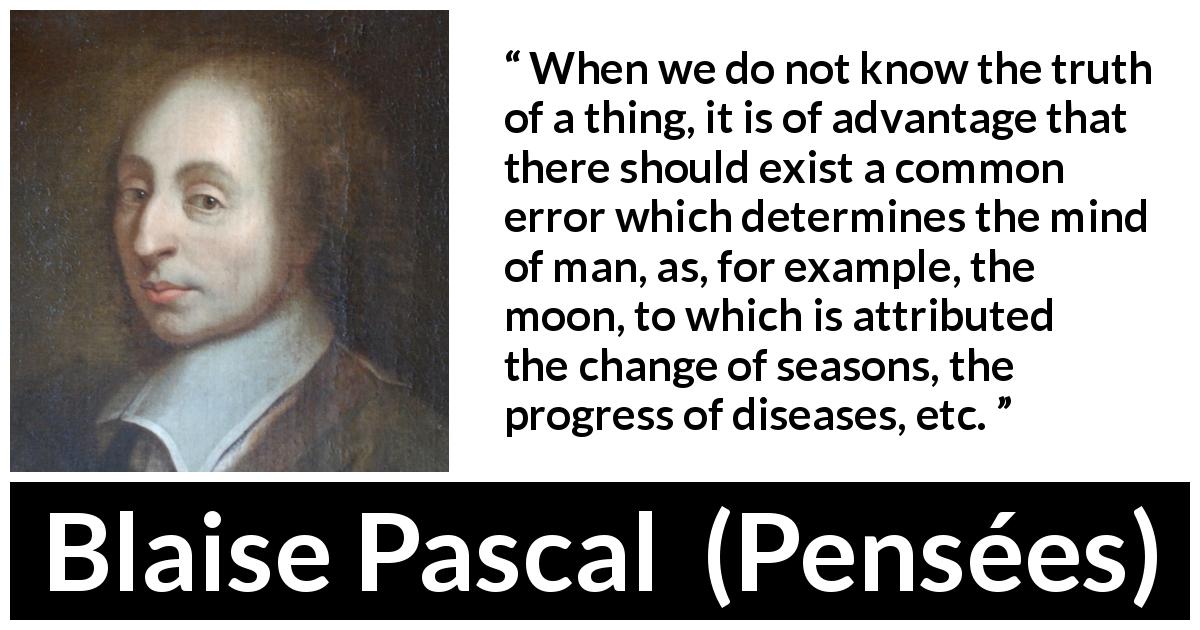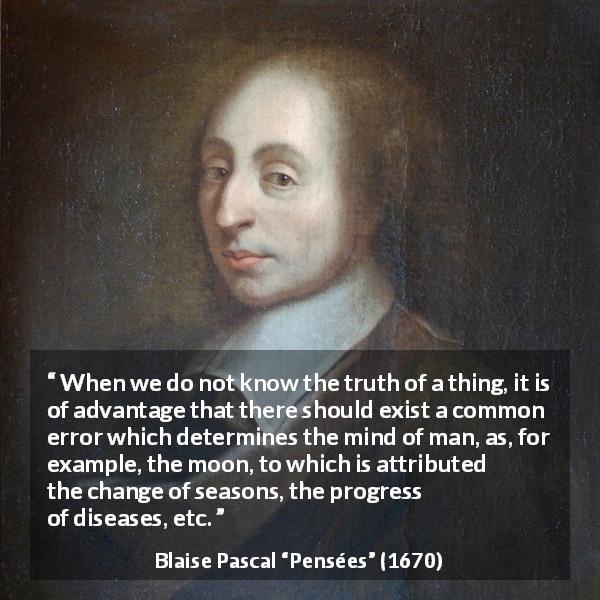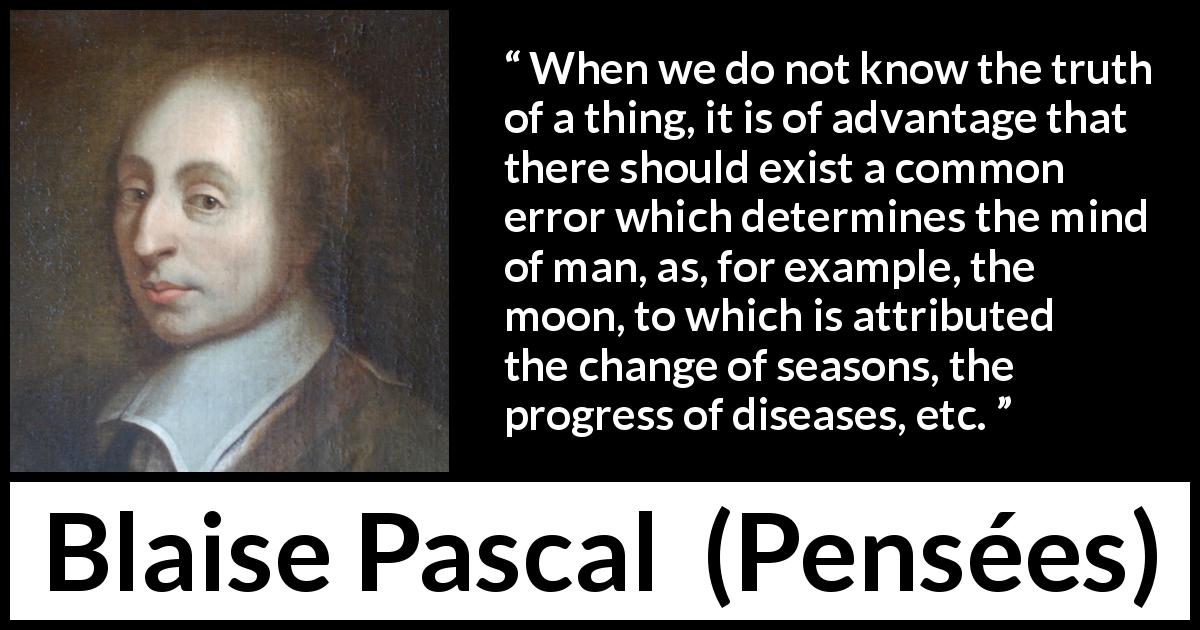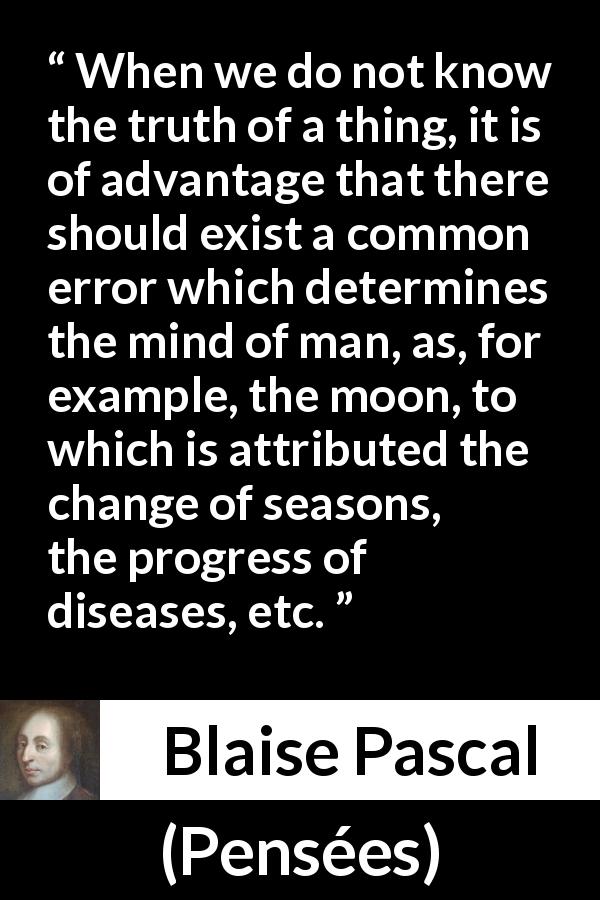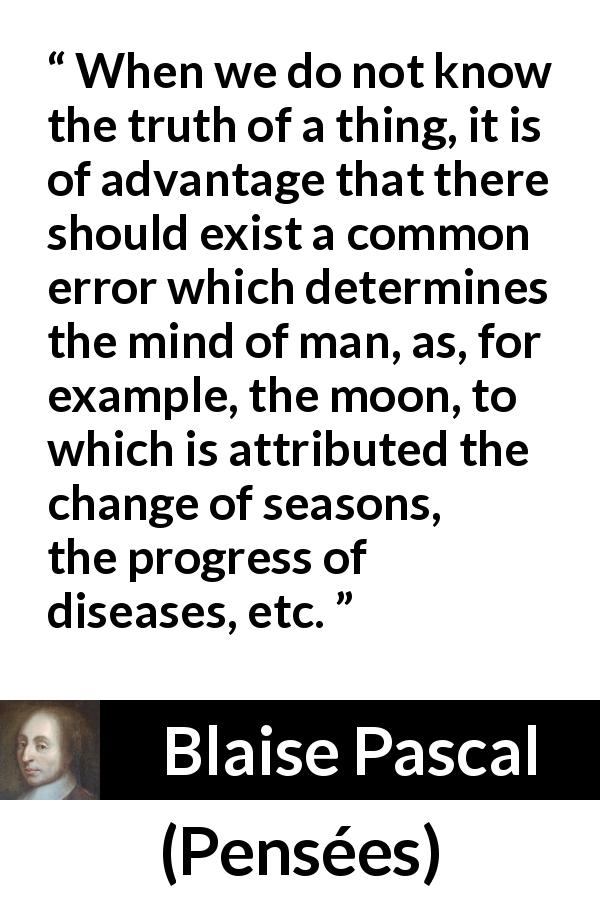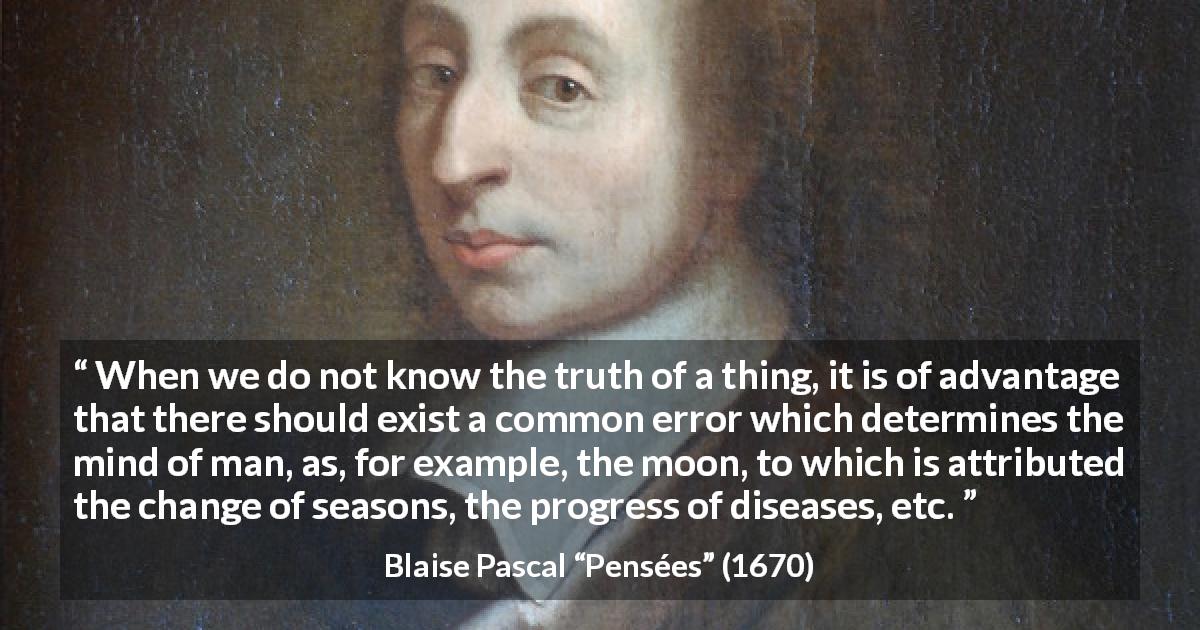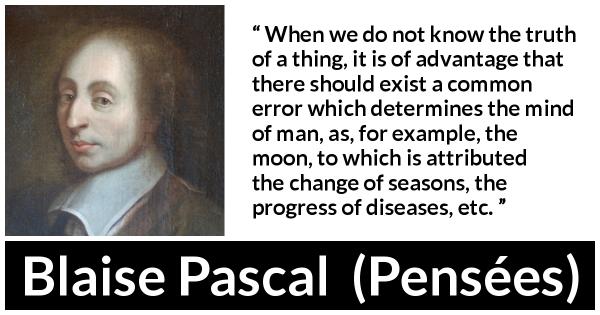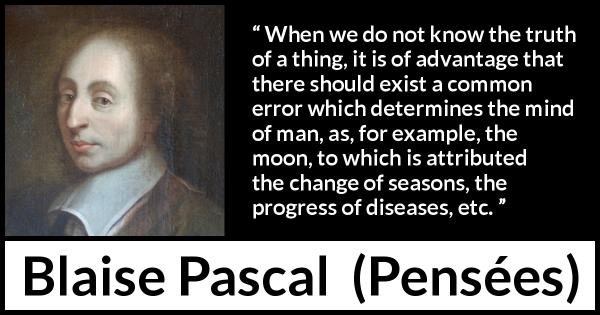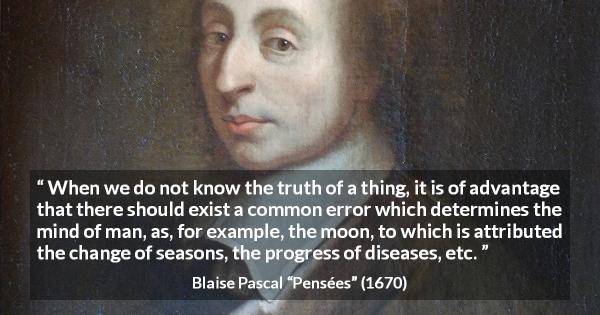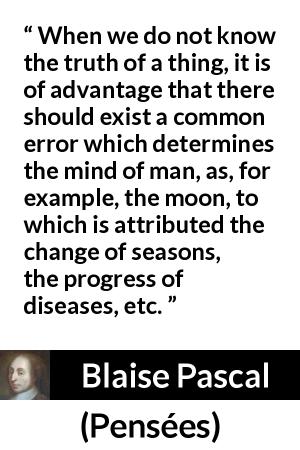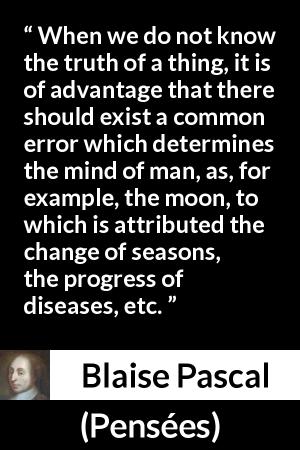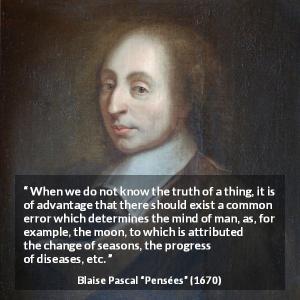“ When we do not know the truth of a thing, it is of advantage that there should exist a common error which determines the mind of man, as, for example, the moon, to which is attributed the change of seasons, the progress of diseases, etc. ”
Blaise Pascal, Pensées (1670). copy citation
| Author | Blaise Pascal |
|---|---|
| Source | Pensées |
| Topic | truth error |
| Date | 1670 |
| Language | English |
| Reference | |
| Note | Translated by W. F. Trotter |
| Weblink | http://www.gutenberg.org/files/18269/18269-h/18269-h.htm |
Context
“It is not enough that a thing be beautiful; it must be suitable to the subject, and there must be in it nothing of excess or defect.
17 Rivers are roads which move,[8] and which carry us whither we desire to go. 18 When we do not know the truth of a thing, it is of advantage that there should exist a common error which determines the mind of man, as, for example, the moon, to which is attributed the change of seasons, the progress of diseases, etc. For the chief malady of man is restless curiosity about things which he cannot understand; and it is not so bad for him to be in error as to be curious to no purpose.
The manner in which Epictetus, Montaigne, and Salomon de Tultie[9] wrote, is the most usual, the most suggestive, the most remembered, and the oftenest quoted; because it is entirely composed of thoughts born from the common talk of life.” source
17 Rivers are roads which move,[8] and which carry us whither we desire to go. 18 When we do not know the truth of a thing, it is of advantage that there should exist a common error which determines the mind of man, as, for example, the moon, to which is attributed the change of seasons, the progress of diseases, etc. For the chief malady of man is restless curiosity about things which he cannot understand; and it is not so bad for him to be in error as to be curious to no purpose.
The manner in which Epictetus, Montaigne, and Salomon de Tultie[9] wrote, is the most usual, the most suggestive, the most remembered, and the oftenest quoted; because it is entirely composed of thoughts born from the common talk of life.” source
